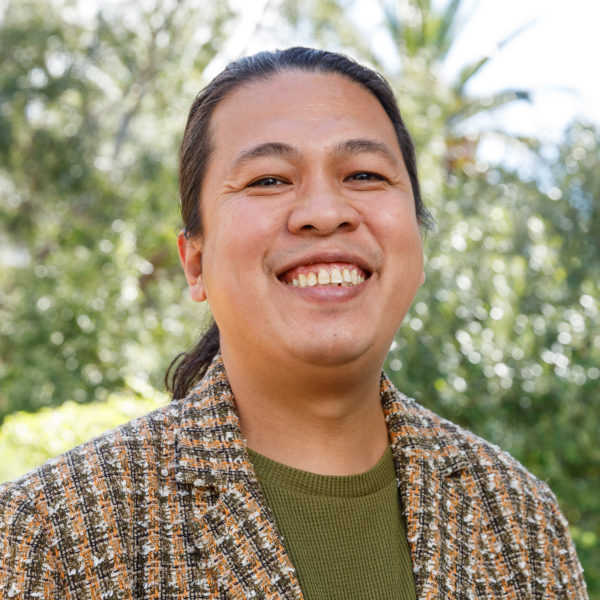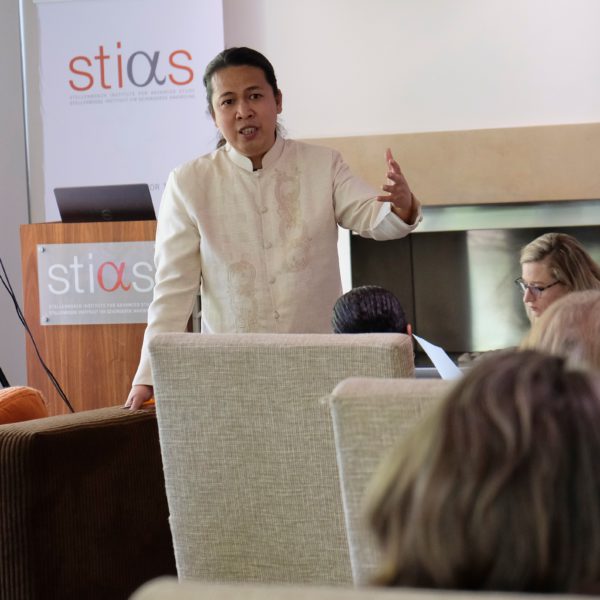Prompted by Roland Barthes’ The Preparation of a Novel, this presentation outlines how in the course of pursuing the creative life as a poet, a translator, an independent filmmaker and as a small press publisher from one of the regions of the Philippines, I now cast myself to another kind of vita nova, by wanting-to-write this tetralogy, which I have happily conceived during my STIAS residency.
Two operative words are constant sources of my critical inquiry and textual (re) productions: religion and the region. Roman Catholicism is considered catholic and universal compared to other theistic religions. On the other hand, Bikol, the geography and the language, is seen as peripheral and vernacular in relation to the national and global imaginaries. Certainly, the interplay of these oppositions is present in my books of poetry and fictions and in my two full-length films, Angustia (2013) and Hinulid (2016).
With concepts of the ‘auraculous’, ‘assemblage’ and the ‘panacousticon’, Auricula, the first of four, explores how colonial and ecclesiastical structures have fashioned identities by using the manual of confession, the books of sermons and conducts, and other devotional materials as blueprints of an elected and holy life. Re-reading these printed literatures written and published during Spain’s colonial rule, I have tracked some gaps and fissures, which enabled me to frame a novelistic agenda on how the Bikols have created a new form of narrating contested subjectivities that are both, oral and aural— fragile, and fluid.
Set around the ‘pistaym’ (peacetime) and the meteoric rise of the abaca trade industry during the American colonial period up until the brutal years of Japanese occupation, I plan to highlight the first half of the 20th century in the second and the third novels respectively.
This quartet which begins in the confession box will culminate with the advent and the rise of the radio in the same provincial town. Meet the local weatherman named Isidro Labordo, an employee of the newly instituted PAGASA, (Philippine Atmospheric Geophysical and Astronomical Services Administration) who makes weather reports for his community and dabbles as the mysterious and anonymous storyteller in another popular radio program. By creating a two-fold persona through his ‘voices’, he retells the old European/syncretic corridos and folktales and uses it to promote and justify Ferdinand Marcos’ declaration of Martial Law and the establishment of a Bagong Lipunan (A New Society) in 1972.
Fast forward: Despite being overthrown from political power in the 1986 revolution, Isidro, anticipated the glorious vindication of the Marcoses, which happened in 2022 with the presidential election of Ferdinand Jr. Now in his advanced age and showing signs of senility, Isidro tries to intimately hold on to what he remembers as the golden age of Philippine history, and this is so because for him the Marcoses possess supernatural powers comparable only to extraterrestrials.


